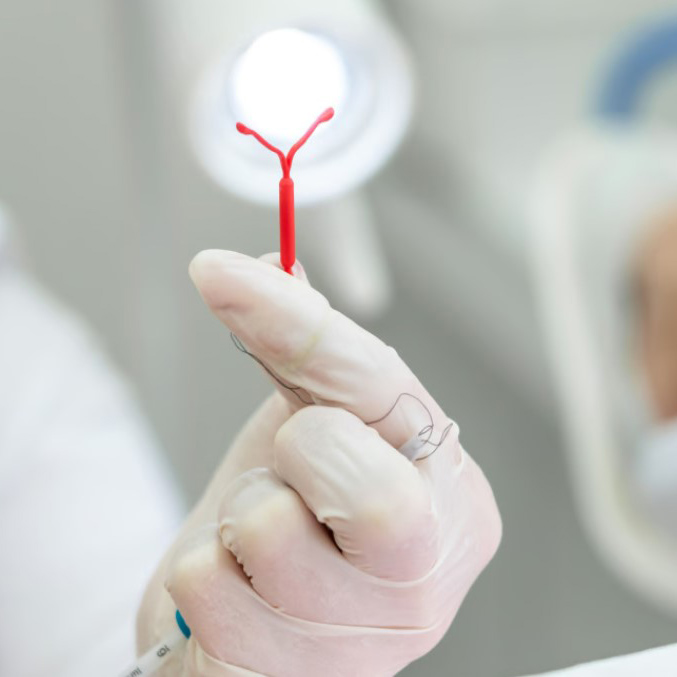Prebiotics Versus Probiotics for Gut Health
Many seemingly unrelated diseases, conditions, and symptoms are now related to the health of the gut and its microbiome. Hippocrates said it best: “All disease begins in the gut.” You can’t ignore your microbiome if you desire to optimize your health. While research is still in its infancy and many questions have yet to be answered, the information below will help ensure you are on the path to not just a healthy gut, but a healthy body too.
Key takeaways:
- Probiotics are actual live microbes that impart beneficial effects to the host (human) when consumed and help repopulate the digestive tract’s microbiota.
- Prebiotics refer to the fuel required to help keep beneficial microbiota inside our bodies thriving.
- The combination of prebiotics and multistrain probiotics in both foods and some supplements have shown to help reduce symptoms, treat disease, and improve overall health.
- Most people appear to benefit from a diverse diet rich in fermented and fibrous foods.
- However, some people with digestive disorders may experience increased symptoms such as bloating and gas upon ingestion.
- Work with your doctor and dietitian to know which foods, supplements, and strains are right for you.
First of all let’s start with the definitions:
Diversity – refers to having many different types of microbiota, bacteria, fungi, and yeast. It is often referred to as microbiome richness. It is generally accepted that a diverse microbiome is better than a non-diverse one.
Dysbiosis – an imbalance of healthy vs. pathogenic bacteria that promotes symptoms and negative health effects.
Family, Genus and Species – a hierarchy classification system of microbes (and all living things). The taxonomic classification is as follows: Domain > Kingdom > Phylum> Class > Order > Family > Genus > Species. In the case of the bacteria, Lactobacillus acidophilus, Lactobacillus refers to the genus, and L. acidophilus refers to the species.
Microbiome – the genetic material in a microbiota community in a certain part of the body, such as the gut or skin.
Microbiota – this is the new term used to refer to gut or intestinal flora and includes both beneficial and pathogenic microbes.
Short-chain fatty acids (SCFAs) – are byproducts that form when gut flora digests fiber material in the colon. These SCFAs have been shown to exert powerful and beneficial effects in the body, including fuel for colonocytes, promoting mucus production in the intestinal lining, and regulating inflammation.
What are probiotics?
Probiotics are actually live microbes that impart beneficial effects to you when consumed and help repopulate your digestive tract’s microbiota. During digestion, fibrous material makes its way to the colon, where the gut flora ferments it, producing SCFAs. These beneficial fatty acids include butyrate, acetate, and propionate, all of which exert anti-inflammatory and anti-cancer effects.
Probiotics can be both healthy bacteria and fungi and are found in various fermented foods and gut health supplements containing live cultures.
[ruby_related heading=”More Read” total=3 layout=1 offset=5]
Common probiotic-rich foods include:
- Yogurt
- Kefir
- Some cheeses (that are fermented)
- Sauerkraut
- Kimchi
- Kombucha
- Fermented vegetables (not just pickled)
Probiotic strains and benefits
While research is ongoing, there are an incredible number of strains within each genus, and we only know a little bit about their effects thus far. This is not an exhaustive list, but as you’ll read, benefits are often seen when strains are combined in multistrain preparations, as one strain cannot do it all. This speaks to the importance of microbiome diversity.
I’m highlighting here only a few of the most well-known beneficial microbes and the health effects seen in randomized controlled trials:
Saccharomyces boulardii (S. boulardii)– a yeast (a type of fungi) that has been shown to reduce the onset of diarrhea with antibiotic use, increase the production of short-chain fatty acids, degrade harmful toxins, help protect the gut lining, reduce inflammation and more.
Streptococcus thermophilus (S. thermophilus) – is a common starter in yogurt and is one of the first bacterial colonizers of the intestinal tract after birth. Probiotic supplementation containing this strain has been shown to improve brain activity, reduce inflammation, improve glycemic control, reduce complications after colorectal surgery, and more.
Lactobacillus acidophilus (L. acidophilus) – this species (when in combination with B. lactis) has been shown to reduce abdominal pain severity, and bloating, common in irritable bowel syndrome (IBS) and other bowel disorders. One small study also found that ingesting of yogurt containing these two species improved uric acid levels, insulin sensitivity, and oxidative stress in those with metabolic syndrome.
Lactobacillus bulgaricus (L. bulgaricus) – this species has been found to be important in improving immune function as we age and reducing bacterial infections. A multistrain probiotic drink containing this species was found to reduce the incidence of infections from the pathogen C. difficile and antibiotic-induced diarrhea.
Bifidobacterium bifidum (B. bifidum) – this species, as part of a multistrain probiotic supplement, was found to improve IBS-dominant symptoms and treatment outcomes in those with ulcerative colitis. B. bifidum may also help reduce stress-related GI symptoms when administered alone.
Bifidobacterium longum (B. longum) – this species has been shown to reduce depression, improve quality of life in those with IBS, promote cognition and reduce feelings of stress in older adults.
What are prebiotics?
While probiotics are the actual microbes, prebiotics are different. Prebiotics refer to the fuel required to help keep beneficial microbiota inside our bodies thriving. You can get prebiotic from supplements or prebiotic-rich foods.
If an abundance of healthy bacteria and yeasts in the colon are deprived of prebiotic material, their populations will die off and dysbiosis is more likely to develop over time.
Prebiotics are rich in:
- Jerusalem artichoke (sunchoke)
- Green banana
- Dandelion greens
- Chicory root
- Oats
- Barley
- Garlic
- Honey
- Bulb onions
- Leeks
- Apples
- Asparagus
- Wheat bran
- Seaweed
Prebiotic supplements include:
- Sunfiber
- Psyllium
- Benefiber
- FOS
- Inulin
Resources
- StatsPearls. Probiotics.
- Journal of Food Science and Technology. Probiotics, prebiotics and synbiotics- a review.
- European Journal of Nutrition. Clinical effects and gut microbiota changes of using probiotics, prebiotics or symbiotics in inflammatory bowel disease: a systematic review and meta-analysis.
- Journal of Leukocyte Biology. Probiotics, prebiotics, and symbiotics: impact on the gut immune system and allergic reactions.







